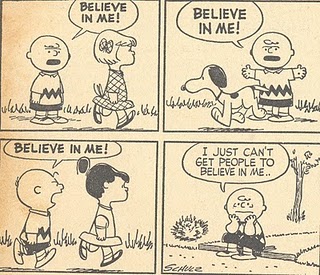
In the book and film, The Name of the Rose by Umberto Eco, the Franciscan friar William of Baskerville[1] speaks about St. Maurice employing humor as he was being tortured for his faith. William then goes on to reference Aristotle’s lost work on humor, causing an uproar from the Venerable Jorge. Jorge claims Aristotle’s work on humor was never written and that William is best to not think of humor. Why? Because Providence doesn’t want futile things glorified, he yells. Do not laugh, for laughter only does harm and is against God’s wishes and his goodness. The entire plot of the story revolves around this very question of God, Aristotle, and the evil of laughter.
This story raises the question about human laughter, but it could also raise up another question: what could God find funny? What could God possibly laugh at or about? In this same scene, Jorge says to William that laughter is the root of evil. He says, “[c]ertainly one who accepts dangerous ideas can also appreciate the jesting of the ignorant man who laughs at the sole truth one should know, which has already been said once and for all. With his laughter the fool says in his heart ‘Deus non est’.”[2] For Jorge, to laugh is to deny truth, which in this medieval world, is to deny God.
This exchange demands we ask something about God, laughter, and truth. It has opened the question about the possibility or impossibility of holy or righteous laughter. The Name of the Rose also revolves around the idea that Aristotle wrote a second poetics devoted humor. This also causes anger, shame, and concern among the holy community. What if it were true? If Aristotle wrote a treatise on humor, would there be something inherently shameful in that fact, as the abbot proclaims. And if THE philosopher cannot be an advocate of mirth, wouldn’t it be the case that the one-in-three being higher than Aristotle, God, could not be an advocate of a chuckle as well?
In this paper, I will argue that God cannot be laughing or finding anything funny under the most ancient of the theories of humor: the superiority theory of humor. I will first discuss the theory, then explain God’s property of omnibenevolence, and then conclude based on this property why God cannot and would not be laughing if the Superiority theory is true.
The Superiority theory states that humor arises from a sense of malice and/or abuse towards something or someone deficient in some virtue relative to what that person or thing is. The humorous sentiment we experience comes from that realization of our sense of being superior to the “buffoon”. Consider the laughter we experience when a practical joke is being played on someone, such as this case from Japan: a man gets into a taxi cab, but unbeknownst to him, the taxi driver is a stunt driver hired to give his passenger a scare for our amusement. Philosophers like Hobbes would say what gives us the pleasure is being in the know, being in the superior position as the one who knows the joke. We laugh because we know something he does not know, mostly that he is safe (even though he fears for his life).
Look at many of the characters we do laugh AT (yes, laughing AT signifies the thinking going on in the superiority theory of humor). Lloyd and Harry in Dumb and Dumber, Tommy in Tommy Boy, all the way back to the men plagued with serious erections in Aristophanes’ Lysistrada. We laugh because Lloyd and Harry do not know the obvious: that Samsonite is the name of a luggage company, not Mary’s last name. We feel superior to Tommy when we thinks the answer to his exam question is Herbie Hancock (not John Hancock). We feel more in control of our desires and bodily lusts than then men in Lysistrada (and then the women who just can’t wait for sex too). These are all cases that point to the validity of the superiority theory. In every culture around the world, we find examples of jokes in which a certain group is the butt of the joke. In this way, we see the global appeal of the theory: everywhere one goes, and in all historical times, we can find examples of the theory in action.[3]
Plato explains that the object of laughter is the “ridiculous.” The ridiculous is the defined as the self-ignorance observed in others when they falsely believe that they possess wisdom. Laughter results from a particular feeling of mirth at seeing others suffer the misfortune of being deluded about their knowledge, such as Tommy’s self-satisfaction after writing Herbie Hancock. Tommy clearly does not have that Delphic wisdom of knowing thy self. This causes him to be ridiculous. Plato writes “taken generally, the ridiculous is a certain kind of evil, specifically a vice.”[4] This vice is ignorance. Plato argues, however, that the soul experiences both “pleasure and pain” when amused by the ridiculous portrayed in comedy. Plato writes, “when we laugh at what is ridiculous in our friends, our pleasure, in mixing with malice, mixes with pain, for we have agreed that malice if a pain of the soul, and that laughter is pleasant, and on these occasions we both feel malice and laugh.”[5] A person feels pleasure and laugh when presented by such ignorant people, even if they are their friends, but to feel pleasure at others’ misfortunes is to feel wickedness, which Plato considers a badness in the soul. The laughter and pleasure that we experience when enjoying comedy is mixed with malice and pain felt at the same time. It is a confusion and is at the core irrational, and thus, best to be avoided for a good life.
Aristotle continues a similar line about amusement and laughter. In his Poetics, he describes comedy as “an imitation of people who are worse than the average.”[6] The ridiculous given to us in comedy is a kind of ignorance and ugliness at which we laugh mockingly. Aristotle thinks of the amusement of comedy as essentially scornful. When enjoying comedy, we laugh at ugliness, bad behavior, and stupidity. But his assessment of amusement seems similar to Plato’s: amusement is the malicious or derisive enjoyment of others’ shortcomings, and thus points to a baseness of the soul.
In the Nicomachean Ethics, Aristotle explains that the best life is lived when one is ruled by reason. He does consider relaxation and amusement as a necessary element in life, but carrying humor to excess is vulgar and improper. “A joke is a kind of abuse,” and only jokes that abuse what is itself improper (i.e., satirical humor directed at irrationality) gain Aristotle’s acceptance.[7] Humor not in service to reason is of negative value. A person who enjoys humor excessively lacks in virtue and becomes a buffoon, someone who has the vice of excess and misses the mark. Persons rather ought to be in control of themselves and guide their behavior by reason. Though, someone who if deficient in humor is also not completely virtuous, since they are a boor: someone missing the median virtue of good humor by lacking any.
I won’t be arguing for or against this theory now, but instead imagine this if the correct theory. If the construct of humor is ultimately explained by superiority, I want to ask the question: could God laugh? I will be using the typical idea of God espouses through Judeo-Christian-Islamic tradition. In relation to the superiority theory, I will focus on the property of omnibenevolence. God is all-good, and in this sense all-forgiving, all-moral, all-loving, all-merciful, etc.[8] Now let us just assume for argument’s sake that not only is the superiority theory true, but that there is an O3 God, meaning that this God is omniscient, omnipotent, and most importantly for this section, omnibenevolent. Can we imagine some being that is all-forgiving, all-kind, and all-good in every possible way, finding humor from feeling a sense of malice above something inferior? Hobbes, famous supporter of the Superiority theory, writes, that “the passion of laughter is nothing else but sudden glory arising from some sudden conception of some eminency in ourselves, by comparison with the infirmary of others.”[9] Can God be laughing at our suffering and ignorance? Can God be showing his teeth while laughing?[10]
Let us consider the traditional trope of the moron joke, a staple in the superiority theory justification box, to put this thought into motion. Since I am from Texas, I will use an Aggie joke here.
Q: Why did the Aggies cover his ears?
A: He was trying to hold in a thought.
We chuckle because clearly we all know (as the Aggie should) that thoughts are immaterial and cannot therefore slip out of your ears.[11] But the imagined Aggie is too stupid. Instead of pitying the Aggie for their lack of intelligence, we mock them through malicious laughter. We are superior and we laugh from our pedestal.
God is on the highest pedestal of all though if he is all the traditional roles ascribed to him. If anyone knows for sure that thoughts do not slip out of our ears, it would be God. God knows this for sure. But can God maliciously laugh at the Aggie, who is in such a state of ignorance? Can God have mocking laughter if he is all-good?
Before answering, let us make sure I clarify what I mean by omnibenevolence or being all-good. There are two ways of understanding this goodness. First, if this goodness is perfection, the kind argued about in the ontological argument, then saying God is all-good is just to say that God is all-perfect: the most perfect of all possible beings. God, like Mary Poppins, is practically perfect in all ways. I will not be focusing on this aspect of the all-good angle, though it could only add to my case. I will focus on the second concept of all-good: the moral sense. In this sense, ‘God is perfectly good’ means that God’s will, action, and thought is always in accordance with moral values and virtue. It is the Platonic kind of perfect goodness. What is perfect must be inclusive of what is morally good. Moral badness is a type of ‘lack’ and God does not lack in anything, being perfect. When one commits an immoral act, it is out of ignorance and imperfection. If evil is a ‘lack’ or ‘failure’, what is morally good is more perfect than what is not. For this argument, I will use Morris’s definition of this property of God’s: “a thoroughly benevolent, conscious agent.”[12]
Given this quality of God, I argue no, God cannot laugh with his teeth barred like the non-Aggie Texans do at this joke. God is all-kind, all-understanding, all-merciful, all-good. In a world where all goodness is known, and everything is consciously known, laughter is impossible, or superfluous, or immoral (thus impossible for God). It could be all of these things. It is slanderous in light of the truth and goodness of God’s nature. God, having the property of omnibevolence, cannot be laughing at the misfortune of others, or the sorry state of their intelligence. God could only respond to the misfortune of others with all-pity and all-mercifulness. While we laugh, God pities. While we play the practical joke, God feels sorry for the poor buffoon on which the joke is played. God isn’t laughing. His all-good nature restrict him from laughing if the superiority theory of humor is true. God does not laugh.
We can see God position as similar to Aristotle’s idea of the person who is dubbed the boor in contrast to the buffoon. “The buffoon cannot resist any temptation to be funny, and spares neither himself nor others if he can get a laugh. He says things that no cultivated man would say, and some which he would not even listen to. The boor, by contrast, is useless in such social relations, for he contributes nothing and takes offense at everything, despite the fact that relaxation and amusement are a necessary element in life.”[13] But would God be a boor? Certainly not. Being a boor surely is not part of perfection. Wouldn’t God have the most perfect sense of humor possible? But should the Superiority theory be the correct description of the way humor works, how does God laugh and at what?
So far it seems that God did not find your Aggie joke funny, but perhaps can tell you why it isn’t and create the most perfect joke possible. And Heaven help you if you don’t laugh at God’s joke.
(c) Nessa Voss, Submitted for Presentation/Publication
[1] Played by the ever-so-holy Sean Connery
[2] Eco, Umberto, Richard Dixon, William Weaver, and Umberto Eco. The Name of the Rose. Boston: Mariner , 2014 pg 154
[3] I recently met an archaeologist working in ancient Mesopotamian writings who told me we have tablets from ancient schools in which children can be seen mocking their teachers by giving them disproportionate noses and posteriors, more evidence that we have always been trying to make someone the butt of our jokes.
[4] Plato, “Philebus”. Morreall, John. The Philosophy of Laughter and Humor. Albany: State U of New York Press, 1987. pg 11.
[5] Plato, “Philebus.” pg 13
[6] Aristotle, “Poetics”. The Philosophy of Laughter and Humor. pg 14
[7] Aristotle, “Nicomachean Ethics”. The Philosophy of Laughter and Humor. pg 15
[8] Euthyphro dilemma be damned for the time being
[9] Hobbes, “Human Nature”. The Philosophy of Humor and Laughter. pg. 19.
[10] Picture: Gary Larson. Far Side. http://leisurelearningcafe.com/god-at-his-computer-gary-larsons-far-side/
[11] Possible philosophy trigger warning
[12] Morris, Thomas, “The Concept of God”. Philosophy of Religion: An Anthology. Ed. Rea, Pojman. Samford: Cengage. 2015. Pg 19.
[13] Aristotle, “Nicomachean Ethics”. Morreall, John. The Philosophy of Laughter and Humor. Albany: State U of New York Press, 1987. pg 16










